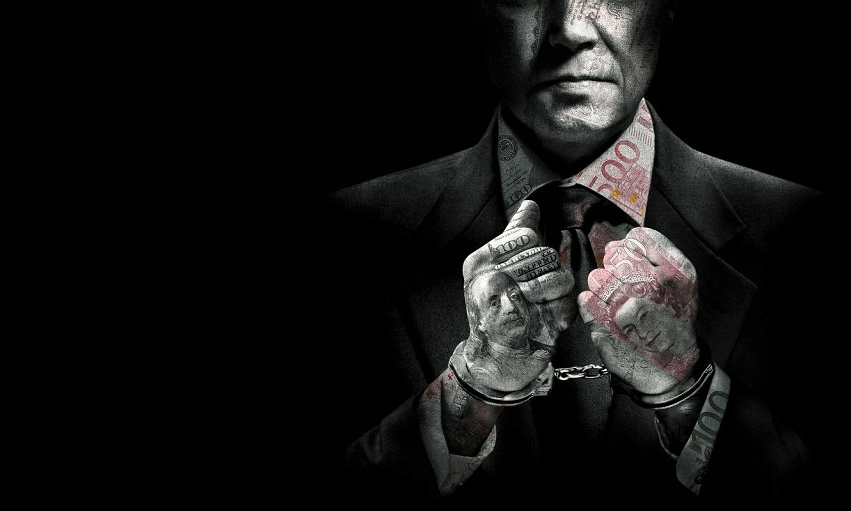The Panama Papers exposed a world in which the uber-rich and powerful were able to hide unimaginable wealth. The reporters who broke the story describe how they did it.
“When it takes a whistleblower to sound the alarm… it signals that democracy’s checks and balances have all failed.”
The final words in the documentary The Panama Papers go to ‘John Doe’, the anonymous leaker whose actions exposed global tax evasion and fraud on a scale never before imagined.
The bombshell release of the Panama Papers in 2016 shone daylight on a system which allowed elected officials, the uber-rich and crime bosses alike to hide trillions of dollars worth of assets from the taxman and other agencies. An international network of journalists worked in secret to reveal the vast corruption, described in the film by one as “underground rivers of money washing around the world unbeknownst to most people”.
Director Alex Winter found fame with his role as teenage slacker Bill in the Bill and Ted films. In later years, he has turned his attention to weightier real-life issues, making documentary feature films on topics such as the rise and fall of Napster, the dark web and blockchain.
One of his recent works is The Panama Papers which will have its New Zealand premiere at the NZ International Fraud Film Festival. It chronicles the herculean efforts of the International Consortium of Investigative Journalists (ICIJ) which spent a year forensically examining over 11 million documents leaked from the Panamanian law firm Mossack Fonseca. Alongside voiceover by Elijah Wood as ‘John Doe’, the journalists describe in their own words how they catalogued and scoured a treasure trove of documents to open a window on a hidden world. Emails from Mossack Fonseca to its clients were particularly fascinating, even revealing glimpses of the writers’ personalities.
Investigative journalist Bastian Obermayer of the Munich-based newspaper Süddeutsche Zeitung (SZ) was the first to receive the Panama Papers. In the beginning, it just seemed like a good story, he says, but then he and his colleagues started finding the names of those implicated: the prime minister of Iceland, football star Lionel Messi, Argentinian president Mauricio Macri, and friends of Russian leader Vladimir Putin. SZ realised it was too big for it alone, and there began a collaboration that at its height involved 376 journalists around the globe.
The New Zealand link and subsequent clampdown on foreign trusts suspected of hiding funds at this end of the world don’t rate a mention, but the film is clear that the tentacles of Mossack Fonseca’s activities stretched everywhere from bribery in Brazil to millions in ‘donations’ to a Russian cellist.
The leaks established the scale of mechanisms that benefited the world’s richest 1%. Bird’s eye views of slums next to golf courses illustrate the film’s point that epic corruption is creating French Revolution levels of inequality that will spell disaster if not addressed. Tales of ‘offshoring’ are nothing new, the journalists say, but the difference with the Panama Papers was that the detail therein allowed them to bring the effects home to people, to demonstrate that they are the victims.
The reporters worked at great personal expense. Some like Rita Vásquez at the Panamanian newspaper La Prensa had to operate like spies and were later denounced as traitors. Many required bodyguards. The doco reminds us that journalists have died exposing wrongdoing, not least Maltese investigative journalist Daphne Caruana Galizia who was assassinated in 2017 following her work on the Panama Papers.
Law firm partners Jurgen Mossack and Ramon Fonseca have been audacious throughout. They recently tried to stop Netflix from releasing its new drama on the Panama papers, The Laundromat. The pair describe themselves as being merely the knife factory, with no responsibility for what people did with the implements. But “they always knew who had the knives and what they were going to do with them”, Vásquez says.
Once the story broke it seemed like Panama Papers-related coverage went on forever and it was easy to become inured. This documentary provides a great overview of what was one of the most significant leaks of modern times. A touch Spotlight with a little bit of Capital in the 21st Century, the doco inspires me as a journalist that despite the parlous state of the media there are people working to uncover and tell the important stories. It also makes the salient point that the best stories today are global, and that requires a network like the ICIJ to tackle them.
The Panama Papers is playing at the NZ International Fraud Film Festival in Auckland on November 13 and 14. The festival also includes the New Zealand premieres of The Kleptocrats, about the $3.5 billion theft from a Malaysian government fund, and Inside Lehman Brothers which tells the stories of several former employees of the failed investment bank who turned whistleblowers.
